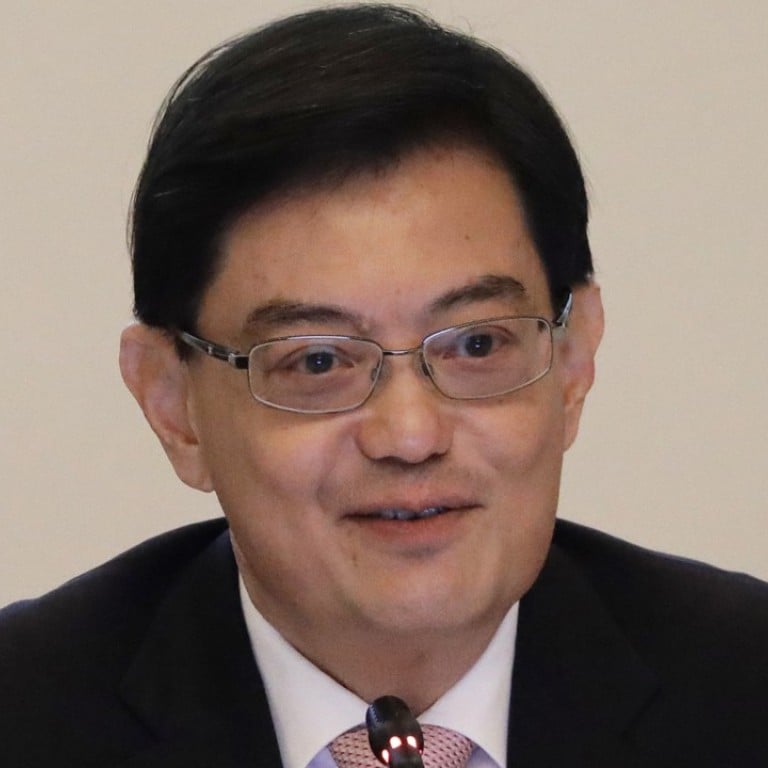
Singapore’s next leader Heng Swee Keat: media’s love affair tells only half the story
- The Lion City’s state-linked media says he’s ‘open and consultative’, but critics wonder about his ability to break with an authoritarian tradition – and whether he can maintain party cohesion
According to The Straits Times, “nice, genuine, soft-spoken, kind” were the adjectives that kept cropping up when colleagues discussed the finance minister, who looks set to succeed Prime Minister Lee Hsien Loong after being named the ruling People’s Action Party’s (PAP) next first assistant secretary general.
But while those descriptions appear to have gone down well with Heng – who in turn describes himself as “very open” – critics dismiss them as one-sided. They say various concerns surround the appointment of Heng, 57, including whether he will tighten political controls, be able to unify the party elite after a tight leadership contest and even whether he is healthy enough for the job after a stroke in 2016.
They say even the PAP’s own supporters hold such concerns regarding the next era of the party’s decades-long rule.
Singapore’s next prime minister Heng Swee Keat: a safe pair of hands
MORE OF THE SAME?
In office since 1959, the PAP has been in power uninterrupted for longer than any other party bar the Chinese Communist Party and the Workers’ Party of North Korea. Critics say the party’s success at the ballot box is partly down to its unapologetic “soft authoritarian” leadership – and question whether Heng is really likely to depart from this approach.
Human rights activist Jolovan Wham questioned quite how “consultative” Heng really was.
“When you control every aspect of society … it isn’t really difficult to ‘consult’, ‘forge partnerships’, and build ‘consensus’, and we know in an authoritarian environment, these processes are often co-opted and independent or marginalised voices are sidelined,” said the activist, recently convicted of “scandalising the judiciary” in Facebook posts.
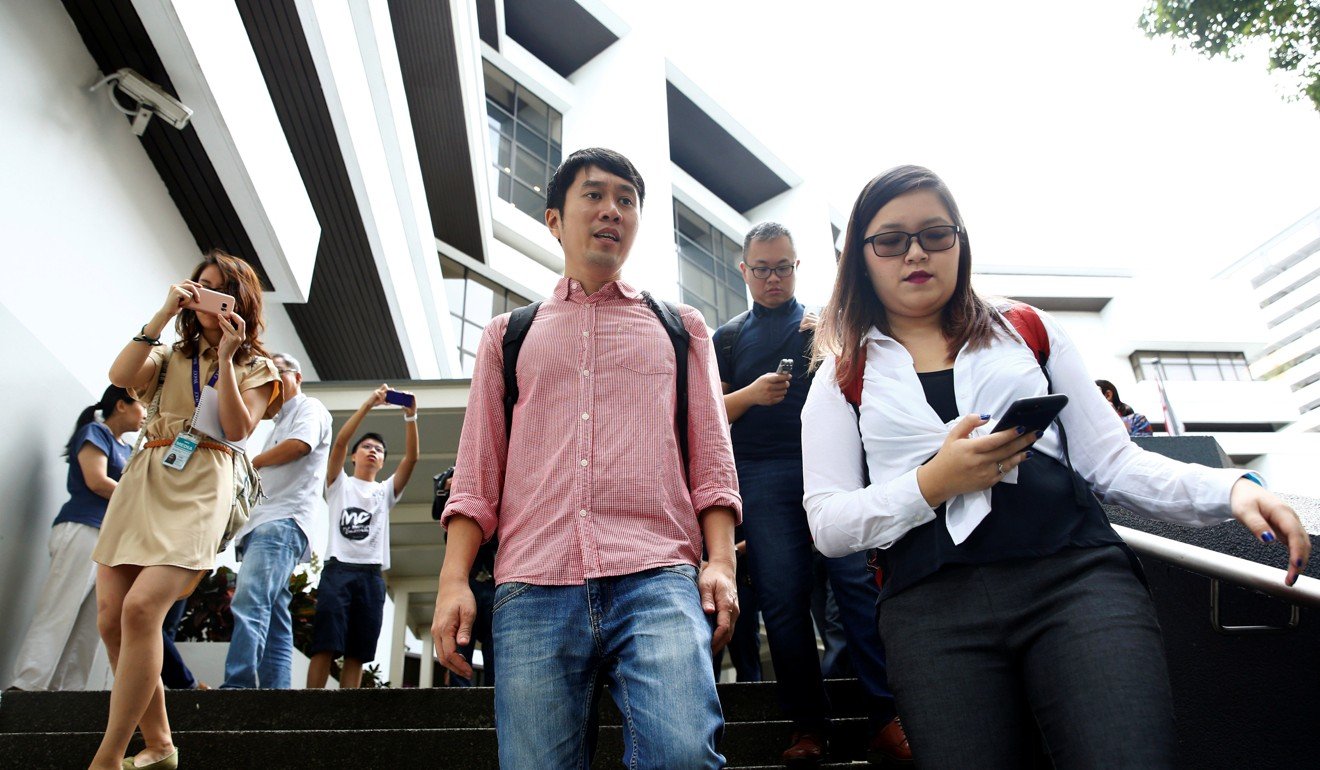
Chee Soon Juan, an opposition politician once bankrupted for failing to pay damages in a defamation suit brought by PAP leaders, also downplayed another major strand of local media coverage about Heng – that he played a critical role in saving the economy during the global financial crisis.
Heng, along with Prime Minister Lee and independent economic observers, has held up his stewardship of the Monetary Authority of Singapore from 2005 to 2011 as an example of how he is a safe pair of hands to lead the US$325 billion economy.
But Chee, whose tiny Singapore Democratic Party has no seats in parliament, said his impression of Heng was that “he is more concerned about toeing the party line rather than thinking and acting out of the box for Singapore’s sake”.
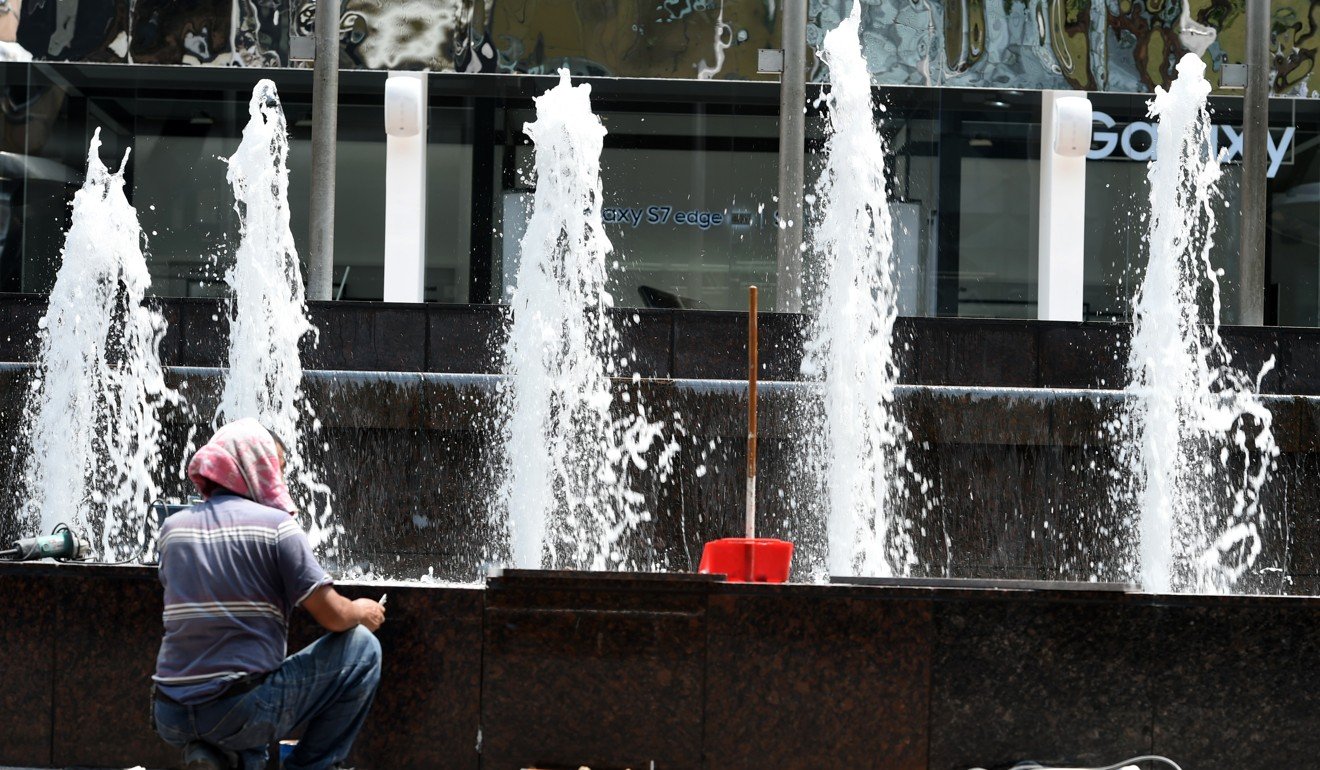
He said: “No matter who gets chosen to be the next PM, the PAP script has been written and all the next leader will do is follow it. Nothing has changed – and therein lies the danger for Singapore.”
Elsewhere, independent commentators saw no easing of the government’s tough approach to the media as the power handover and an election nears.
A new law to fight against “deliberate online falsehoods” – or fake news – may be on the cards, judging from comments by PAP heavyweights.
Is this Singapore’s next PM? Finance Minister Heng Swee Keat
This month the government cited Facebook’s rejection of an official request to take down a “false and malicious” post about Prime Minister Lee by a foreign blog as a prime example of why the country needed new laws to stop fake news.
Separately, Terry Xu, the editor of local blog The Online Citizen, is being investigated for possible criminal defamation after the site published an article suggesting the country’s leaders were corrupt.
Xu told This Week in Asia he foresaw “more drastic moves to be taken by the government as the election draws closer, particularly on the independent media and opposition parties”.
The election is due by April 2021, but it is widely expected the vote will be brought forward – possibly as soon as next year – and that Heng will take over from Lee soon after.
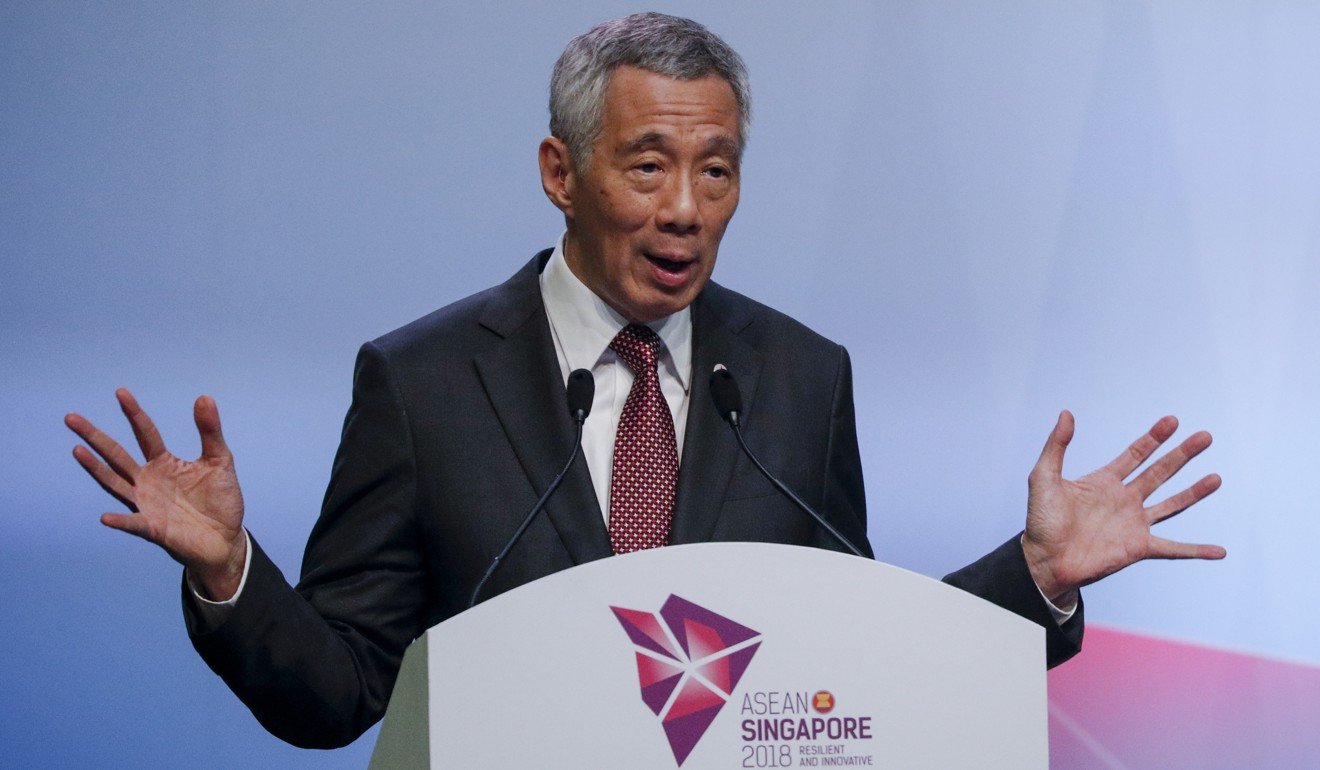
Lee, in power since 2004, has said he intends to step down before he turns 70 in 2022.
A government official told Reuters in a report published on Tuesday that the ongoing investigation into Xu was “in no way related to elections”.
“Robust discussions, including criticism of the government, take place every day on various platforms. But we will not allow the integrity of our public institutions to be impugned under the cover of free speech,” the official said.
INTERNAL MACHINATIONS
But Heng’s stance on dissent is of less interest to many in the PAP faithful – some 69.9 per cent of the country’s electorate voted for the party in 2015 elections – than his ability to keep the party as cohesive and disciplined as it has been under Singapore’s first three prime ministers: Lee, Goh Chok Tong and Lee Kuan Yew.
The late Lee Kuan Yew, the current prime minister’s father, co-founded the PAP, and much of its ethos can be traced back to him. He devised the process to select the prime minister – sometimes compared with how cardinals pick the pope – when he handed power to Goh.
It involves a younger generation of ministers picking a leader among themselves, a “first among equals”, and compels the sitting prime minister not to interfere in their decision.
In both previous handovers, the successor was named years in advance.
There was a slight break from tradition this time around, with Heng’s ascension a protracted affair.
Until recently, some in the establishment had been under the impression that trade and industry minister Chan Chun Sing would be made Singapore’s fourth prime minister.
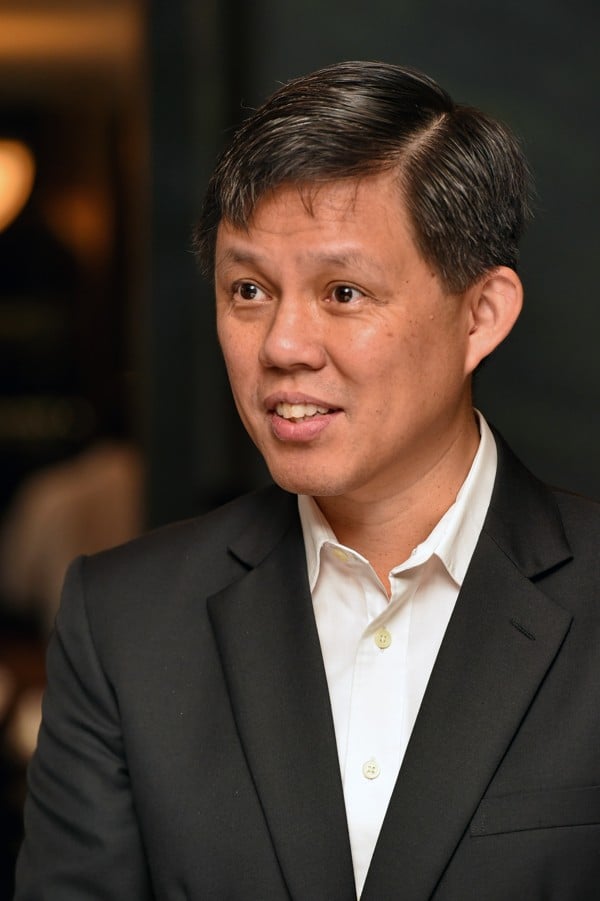
While little is known about the selection process, observers have suggested that support from the party’s cadres may have tipped the scales in Heng’s favour.
More than 1,500 cadres voted in an internal poll to select a new central executive committee on November 11.
In a column over the weekend, former newspaper editor PN Balji quoted party veteran Inderjit Singh as saying while there was a “general perception” that Chan was a preferred candidate, “the cadres might have exercised their votes to show they preferred Heng Swee Keat”.
Bridget Welsh, a Southeast Asia observer at the John Cabot University in Rome, said her view was that “the party leadership won out, rather than Lee Hsien Loong who was seen to be closer to Chan”.
Singapore’s new leadership team: younger, more diverse
“The … leadership process points to personality splits and competition within the ranks of the PAP,” Welsh said.
She said key things to watch would be “how contenders respond to displacement, Heng’s health and performance in helming the economy”.
Within the party ranks, former lawmaker Inderjit said the next election would be a referendum on Heng and his “4G” team who will take over from the current administration.
“None of the 4G leaders have delivered groundbreaking policy initiatives … so it is important for the 4G to show … their own initiative of delivering policies that satisfy Singaporeans and they have to do it fast,” he told Reuters.
“If they fail, trust [in the PAP] will be eroded, and this could change the political landscape of Singapore.”
Other observers say any anxiety about Heng should be kept in context.
Lynette Ong, a researcher on authoritarian political systems at the University of Toronto, said she did not see “any sign of [an] elite split in the PAP at this point”.
“But it doesn’t mean the party is not divided into factions. In all likelihood, it is likely to be divided like any other political party, especially one whose leadership succession hinges on ‘inner party democracy,’” the political science professor said.
She added: “The PAP has done a great job in concealing any division there may be in the party.”
Veteran economic observer Song Seng Wun said the business community welcomed Heng’s ascension.
“Elsewhere in this region, us analysts would be busy telling bosses and clients what the imminent political change means for the world of work and money,” Song wrote on his Facebook page. “Here in Singapore, it is business as usual because there is political continuity. Markets like clarity, visibility [and] consistency.”

